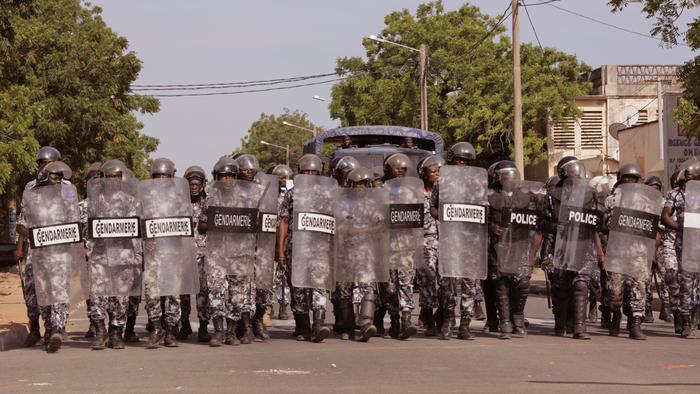As a result of the ongoing unrest in the West African country of Togo, the number of refugees fleeing to neighboring Ghana is on the rise. The United Nations Refugee Agency claims that Ghanaian authorities have registered 513 asylum-seekers as of October 27, 2017. The United Nations High Commissioner spokesperson, Babar Baloch, disclosed this at the press briefing at the Palais des Nations in Geneva.
Many of the refugees arrived through unconventional and remote routes including Chereponi, Zabzugu and Bunkprugu-Yunyou in the northern sections of Ghana and are being hosted by local families and community centers. The Chereponi District Chief Executive, Abdul Razak Tahiru confirmed the situation to Citi FM, a private radio station in Accra, the national capital of Ghana. Tahiru said, “Majority of the refugees are living with their extended family relations and friends and we are providing them food, blankets and other valuables to ensure their comfort and safety[sic].”
Baloch also disclosed that the UNHCR, the Ghana Refugee Board and the National Disaster Management Organization of Ghana are currently mobilizing efforts towards assessing the situation in these remote areas. They are also working on a response plan, such as the preparation of relief items to take care of the increase in arrivals. “A joint UNHCR/ Ghana Refugee Board mission is currently on its way to those remote areas to assess the situation. Togolese seeking safety, including women and children, told UNHCR staff that they had fled on foot, walking from their homes in Togo’s Mango region, bordering Ghana. They said they were fleeing human rights abuses after the recent political protests,” Baloch said.
Since August 2017 the citizens of Togo have been marching on the streets of the national capital Lomé, to protest against their President Faure Essozimna Gnassingbé, wanting him to step down from power to end what they call the “Gnassingbé dynasty.” The government responded by unleashing a security apparatus on the protestors. Some protesters were killed in the process. In early September, the government blocked Internet access to restrict the mobilization of people. Mobile data was also cut on Sept. 5. The internet connectivity was restored almost a week after it was cut.
In a statement issued on Sunday, Sept. 10, 2017, Flt. Lt. (Rtd.) Jerry John Rawlings, a former president of neighboring Ghana, warned against the possible devastating effect of the militarized government efforts stating, “government troops must adopt strides to ensure there is no regression into civil explosion.” Togo is a West African country that shares an eastern border with Ghana, located in a region that Denmark held in the 18th century as a trading post. In
1884, it became a German and a French colony after World War I. It gained independence
from France in 1960. Linford Odartey Lamptey, a second-year master’s student from Ghana in the department of humanities told the Lode,“I think the African Union needs to step into the crisis and approach it from a continental level. We cannot keep creating refugee camps that expel people onto the systemic edge. The situation is troubling indeed, but it is not beyond the efforts of continental leadership.





